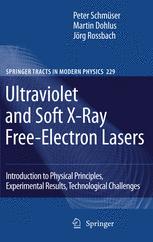

Most ebook files are in PDF format, so you can easily read them using various software such as Foxit Reader or directly on the Google Chrome browser.
Some ebook files are released by publishers in other formats such as .awz, .mobi, .epub, .fb2, etc. You may need to install specific software to read these formats on mobile/PC, such as Calibre.
Please read the tutorial at this link: https://ebookbell.com/faq
We offer FREE conversion to the popular formats you request; however, this may take some time. Therefore, right after payment, please email us, and we will try to provide the service as quickly as possible.
For some exceptional file formats or broken links (if any), please refrain from opening any disputes. Instead, email us first, and we will try to assist within a maximum of 6 hours.
EbookBell Team

5.0
50 reviewsIn the introduction accelerator-based light sources are considered and a comparison is made between free-electron lasers and conventional quantum lasers. The motion and radiation of relativistic electrons in undulator magnets is discussed. The principle of a low-gain free-electron laser is explained and the pendulum equations are introduced that characterize the electron dynamics in the field of a light wave. The differential equations of the high-gain FEL are derived from the Maxwell equations of electrodynamics. Analytical and numerical solutions of the FEL equations are presented and important FEL parameters are defined, such as gain length, FEL bandwidth and saturation power. A detailed numerical study of the all-important microbunching process is presented. The mechanism of Self Amplified Spontaneous Emission is described theoretically and illustrated with numerous experimental results. Three-dimensional effects such as betatron oscillations and optical diffraction are addressed and their impact on the FEL performance is analyzed. The world’s first soft X-ray FEL, the user facility FLASH at DESY, is described in some detail in order to give an impression of the complexity of such an accelerator-based light source. Finally, the physical and technological challenges of X-ray FELs are addressed while some of the more involved calculations are put into the appendices, where also supplementary material can be found.